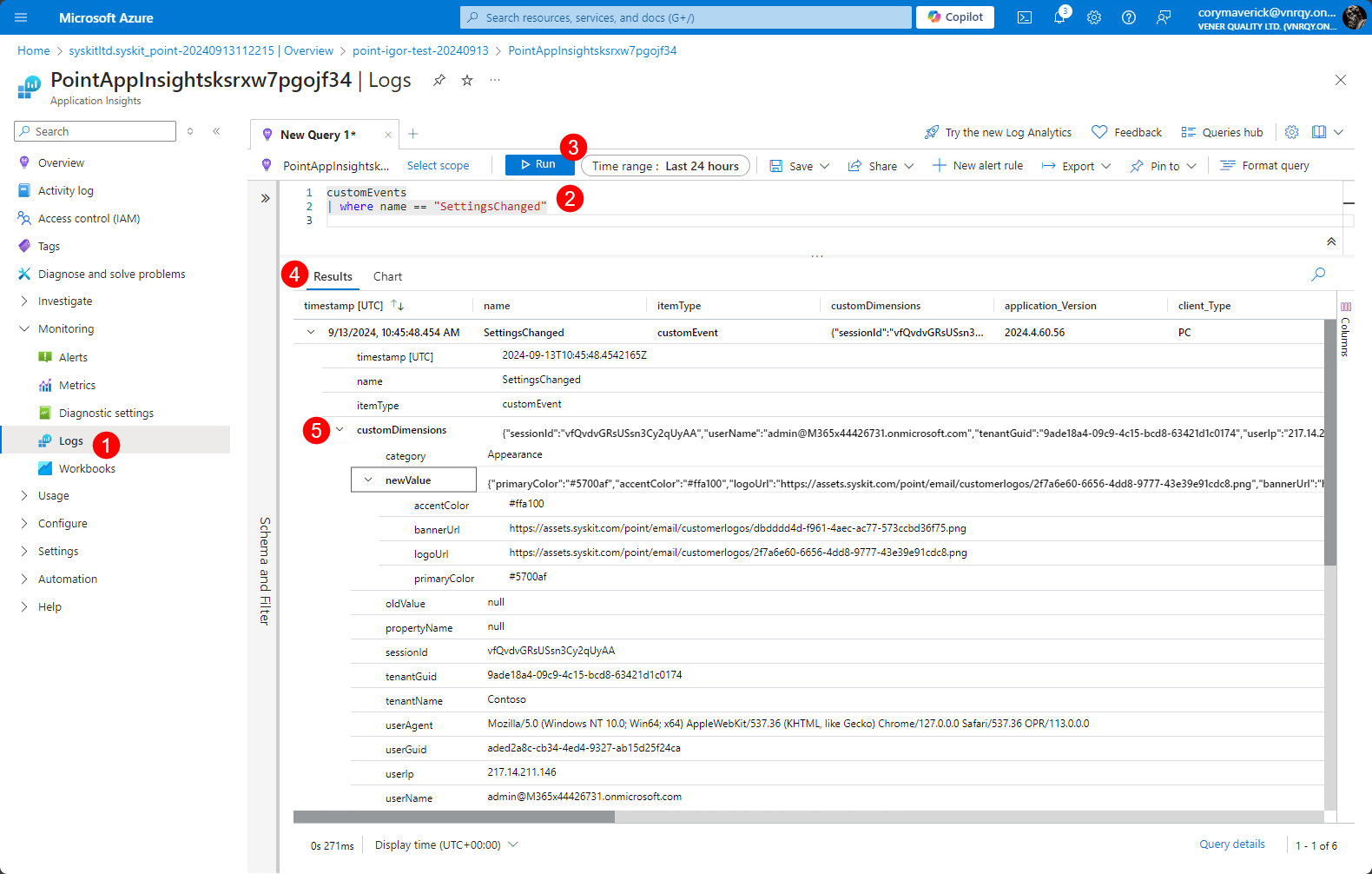Audit for Syskit Point Settings
Please note! Settings audit logs are readily available for Point Enterprise customers. SaaS customers are advised to contact Syskit Support if they require audit logs for changes made in Syskit Point settings.
Syskit Point logs all changes in settings along with important additional information, such as the user who changed a setting, which setting was changed, as well as the values before and after the change, thus providing a complete picture of what was changed, when, and by whom. The Audit Log for your Point Settings can be accessed through the Application Insights resource.
No additional configuration in Syskit Point is needed to log the changes in Settings. This is done automatically.
In this article you can find information on:
- Accessing Application Insights
- Query Logs
- List of Common Properties in Logs
Accessing Application Insights
To access Application Insights for Syskit Point:
- Open Microsoft Azure portal
- Find and open the Syskit Point Azure resource group
- Navigate to the Application Insights resource within the resource group
- Find and click Logs (1) in the Monitoring section in the left-side menu
- In the New Query tab, enter the following query (2):
customEvents
| where name == "SettingsChanged"
- When you've entered the above value, press the Run (3) button to execute your query.
- In the Results (4) section you'll find information about the actions taken in Syskit Point settings.
- If no actions are shown in the results, try to adjust and increase the time range (5) and run the query again.
- Expanding customDimensions (5) for each log gives you more details about what changed.

Common Log Properties
In the table below, you can find common properties for all logs, along with more details about each property.
| Property | Description |
|---|---|
| category / propertyName | Give you information about which exact settings were changed. For example, changing the e-mail send method from Exchange Online to SMTP would have the category set to Base (since this is considered as one of the baseline settings for Syskit Point), and propertyName set to EmailSettings.SelectedEmailMode |
| userGuid | Object ID of the user who changed a setting |
| userName | User principal name of the user who changed a setting |
| userIp | IP address for the individual that made the changes |
| sessionId | ID of the user's session |
| userAgent | Shows the browser and operating system used by the user |
| newValue | Shows the settings value after the change; when the property is null, an object was deleted in Settings; e.g., an unused Policy |
| oldValue | Shows the settings value before the change; when the property is null, an object was created in Settings; e.g., a new Policy |